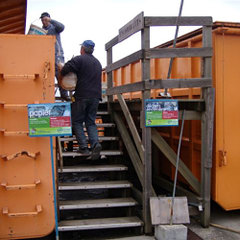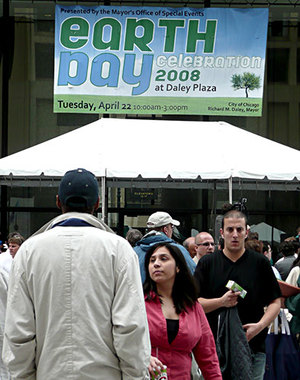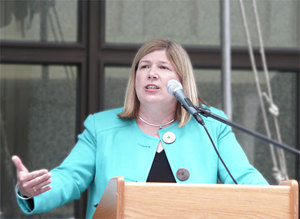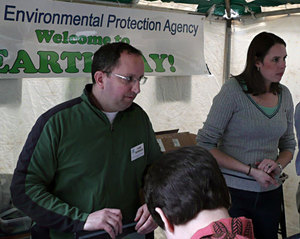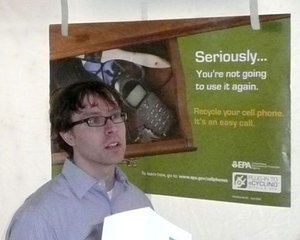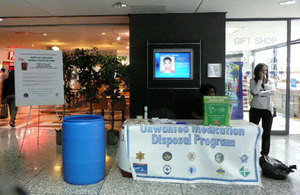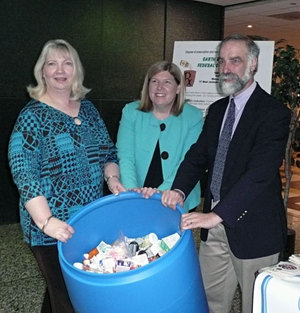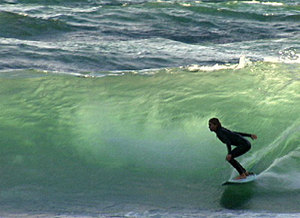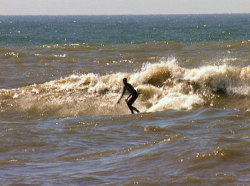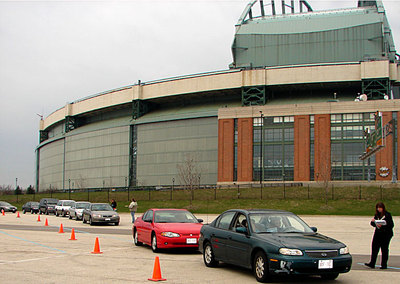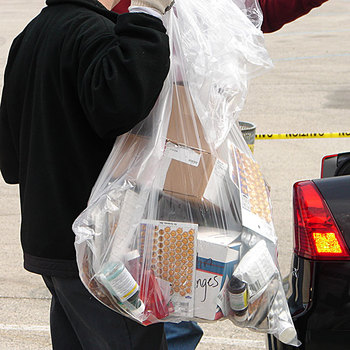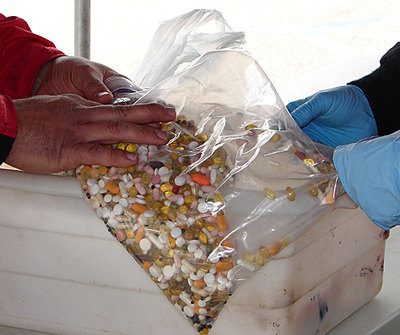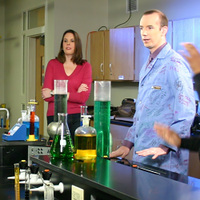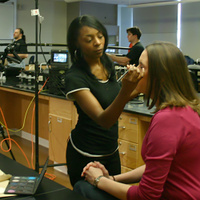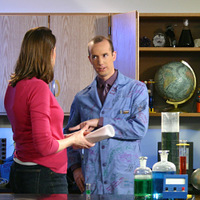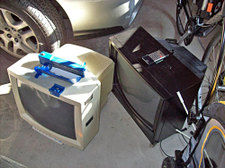Climate change, basketball, and a less wasteful, promising future
Last summer I became the climate change coordinator here in EPA's Region 5 office. When I tell folks this in social situations, the opinions surface immediately. For example, some people have insisted that this past cold, snowy winter disproves climate change. But there's a difference between weather and climate .
According to NOAA's National Climactic Data Center, during the November 2007-January 2008 time period, here in Illinois we had near normal temperatures and above normal precipitation (in other words, cold and snowy). Weather is short-term and local.
On the other hand, climate involves examining the long-term picture. We see that U.S. average temperatures have gone up over the last century.
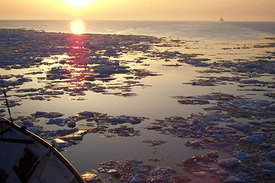 The analogy that I often use that people can relate to is a sports team's record. For example, my dear Illini men's basketball team
The analogy that I often use that people can relate to is a sports team's record. For example, my dear Illini men's basketball team ![]() is usually pretty good (i.e., their "climate"). This past season they had a losing record (just a little bad weather, y'all!)
is usually pretty good (i.e., their "climate"). This past season they had a losing record (just a little bad weather, y'all!)
According to the Intergovernmental Panel on Climate Change ![]() , an international group of climate change experts and recipients of the Nobel Peace Prize, warming of our global climate system is considered "unequivocal", and that, with over 90% certainty, humans have induced most of the warming over the past 50 years. How often can you get a group of people from all over the world to agree on something? And a bunch of scientists, no less?
, an international group of climate change experts and recipients of the Nobel Peace Prize, warming of our global climate system is considered "unequivocal", and that, with over 90% certainty, humans have induced most of the warming over the past 50 years. How often can you get a group of people from all over the world to agree on something? And a bunch of scientists, no less?
And consider this: Even if you aren't concerned about Midwestern summers getting even hotter, we are all tossing a lot of money (and corresponding greenhouse gas emissions) out the window by living in drafty houses with power-wasting appliances and driving cars with sub-par fuel economy.
In December I attended the partners meeting for EPA's Climate Leaders program, which helps companies inventory their greenhouse gas emissions and set reduction goals. I learned that partner companies weren't just helping the environment, they were saving a lot of money in the process! For example, Caterpillar, where my dad worked until retiring last year, installed its own combined heat and power technology at a plant in Aurora, IL, reducing CO2 emissions by 74 percent and saving $2M annually in energy costs. That's real dough!
So…..the good news is that many organizations, governments, companies, and citizens are out there, addressing climate change. Check out some of Region 5's goals and what you can do as an individual and in your community.
Actions that combat climate change can also create new "green" jobs and industries and improve quality of life. The U.S. can be a leader in developing new technologies that can reduce greenhouse gases, just as we have been a leader in information technology.
Many climate change scenarios use 2050 as a long-term target date; basically, we really need to get our act together by then. I'll be in my mid-70s in 2050, hopefully sitting in my energy-efficient, "zero carbon" home, proud that we addressed the problem capably and reaped the wondrous potential of the solutions.
Melissa Hulting is EPA Region 5’s climate change coordinator. Prior to this position, she worked on monitoring and reduction of toxic chemicals in EPA’s Great Lakes National Program Office. Read how climate change will affect the Great Lakes.

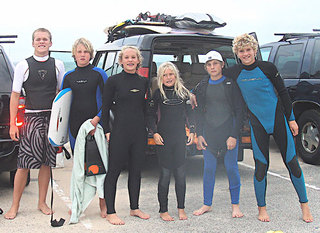

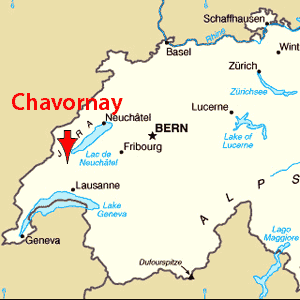 What if you got fined for putting your old computer in the trash? That could happen in Switzerland. I found this out while visiting my sister, who lives in Chavornay. This small village near Lausanne is perched on an ancient plateau between the Alps and the Jura Mountains. Humans have been living here for 14,000 years. I wonder what the place would look like if they’d been throwing out today’s trash all that time!
What if you got fined for putting your old computer in the trash? That could happen in Switzerland. I found this out while visiting my sister, who lives in Chavornay. This small village near Lausanne is perched on an ancient plateau between the Alps and the Jura Mountains. Humans have been living here for 14,000 years. I wonder what the place would look like if they’d been throwing out today’s trash all that time!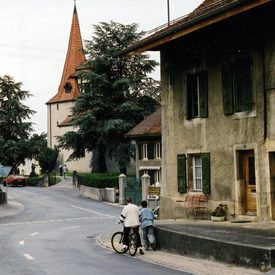
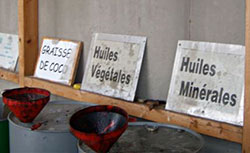 Then there's less obvious stuff:
Then there's less obvious stuff: